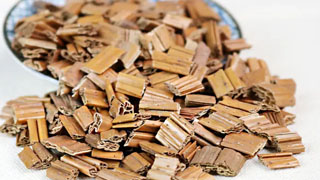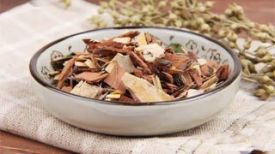
Harvesting and processing: Harvesting in summer and autumn, removing leaves and lotus pods, sun drying or fresh use.
Medicinal parts: petiole or flower stem
Origin: National
Family: Water Liliaceae
Original plant: Lotus
Plant situation: Perennial aquatic herb
Characteristics of lotus stem medicinal material: This product is nearly cylindrical, 40-80cm long, 8-15mm in diameter, with a surface that is brown or yellow brown, and several longitudinal grooves of varying depths and small thorny protrusions. Lightweight, brittle, easy to break, with varying sizes of pores in the cross-section. The air is faint and the taste is light.
High quality products that are dry, long, thick in diameter, brownish yellow, and free of soil and impurities are preferred.
Lotus stem medicinal properties:
【 Taste 】 Bitter; Sexual Peace
[Gui Jing] Spleen; Bladder meridian
【 Indications 】 Relieve heatstroke and clear heat; Regulate qi and transform dampness. The main heat is dampness, chest tightness, and discomfort; Diarrhea; Dysentery; Gonorrhea; Take it
[Usage and Dosage] Oral administration: decoction, 9-15g.
【 Prescription 】 Treatment for symptoms such as heatstroke, dizziness, slight sweating, and wheezing: 1 and 2 taels of Huanglian, 1 taels of Elsholtzia, 3 taels of Lentil Robe, 1 taels of Magnolia officinalis (stir fried with ginger juice), 2 taels of Almonds (peeled, pointed, and ground), 1 and 5 taels of Chenpi, 1 and 5 taels of Xiaxia, 3 taels of Yiyuan Powder, and 7 inches of lotus stems added as a starter. Sweat too much to remove the fragrant lotus. (From "Treatise on Time and Illness")
【 Discussions from Various Schools 】
1. "Materia Medica Renewal": Ventilate and cool down, clear fire and clear the heart.
2. "Suixi Ju Diet Guide": Breathe and relax muscles, increase body fluids and quench thirst. For those who have harvested after frost, clear heat and stop night sweats, and clear away excess water.
3. "Modern Practical Traditional Chinese Medicine": for astringent drugs. Used for chronic weakened enteritis, chronic diarrhea, intestinal bleeding, chronic uterine inflammation in women, leukorrhea, nocturnal emission or nocturia in men. Another antidote. "


